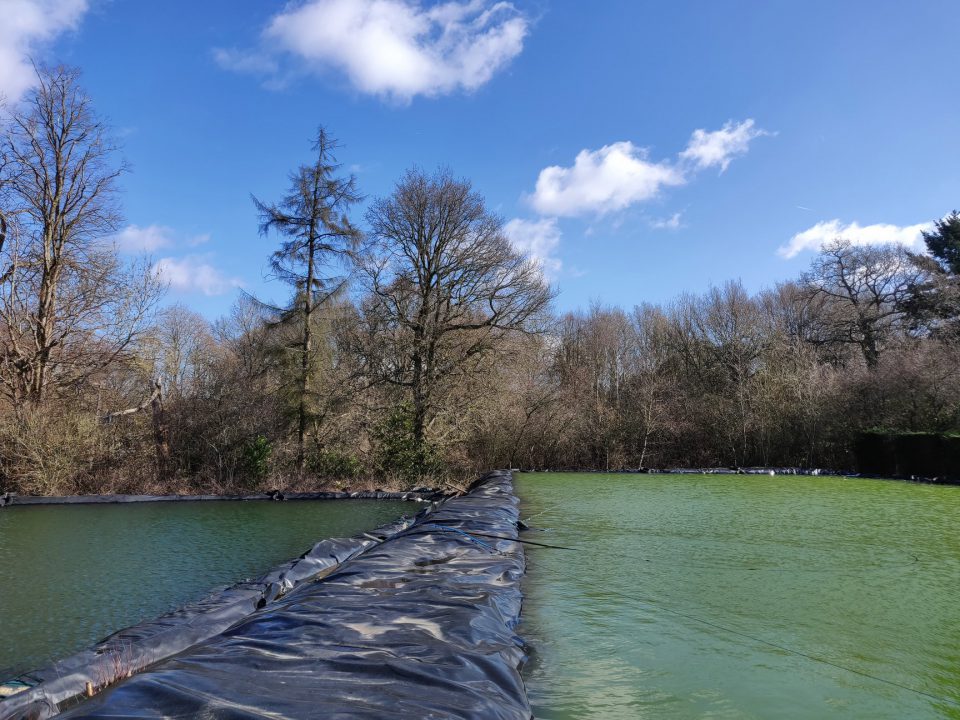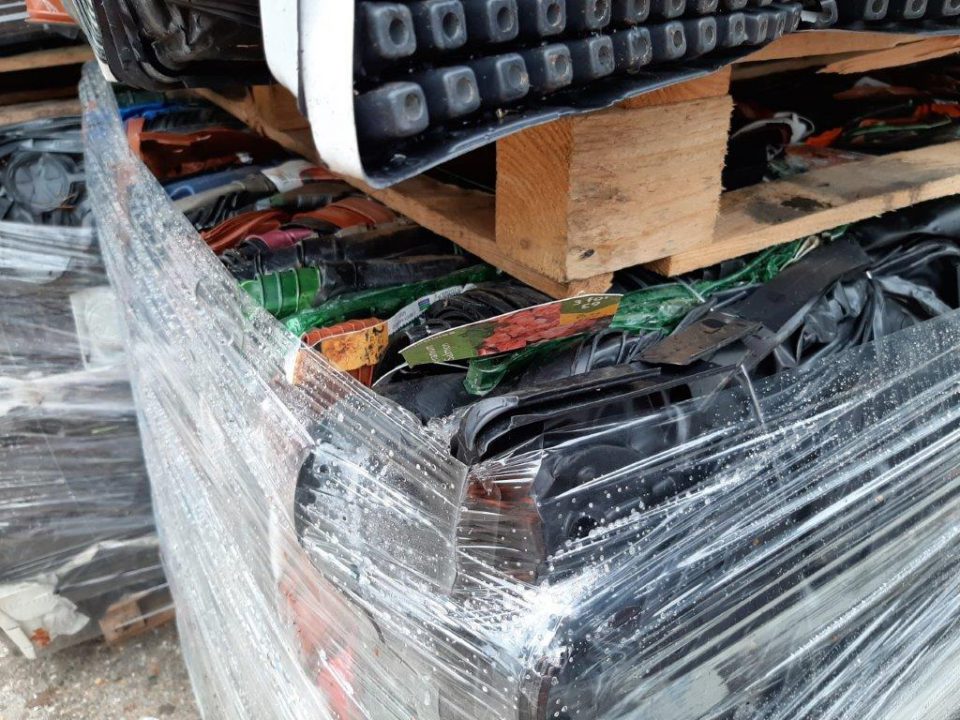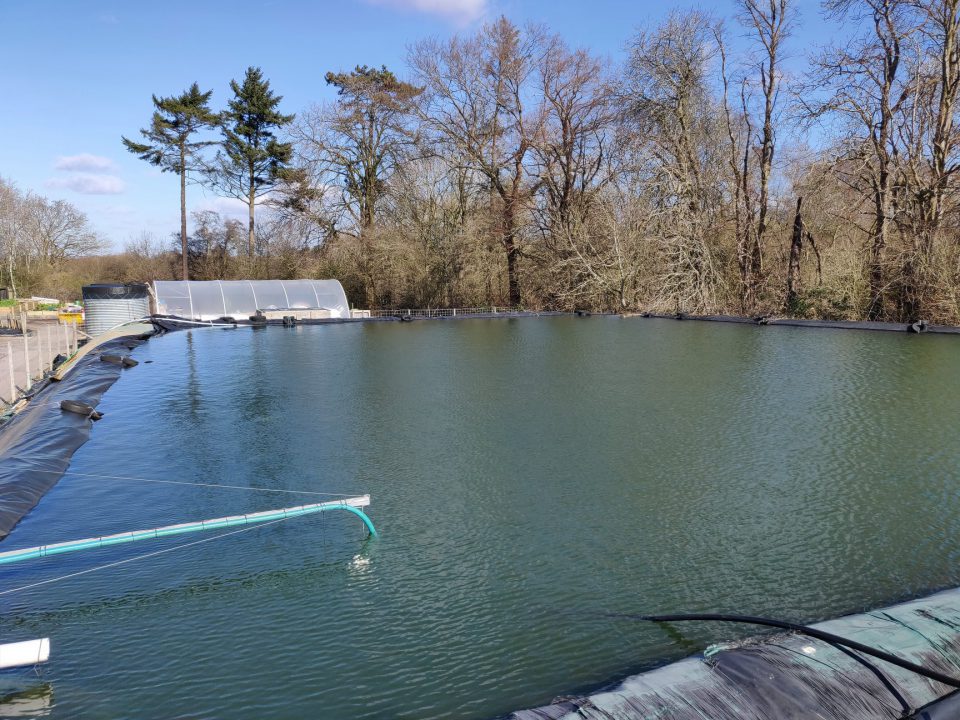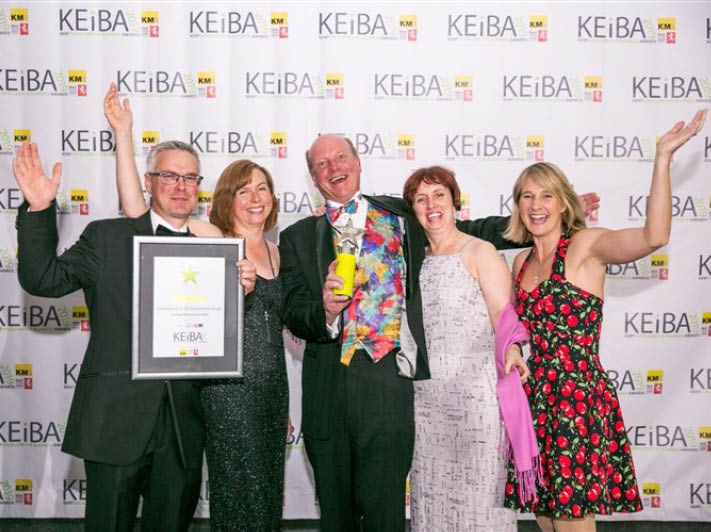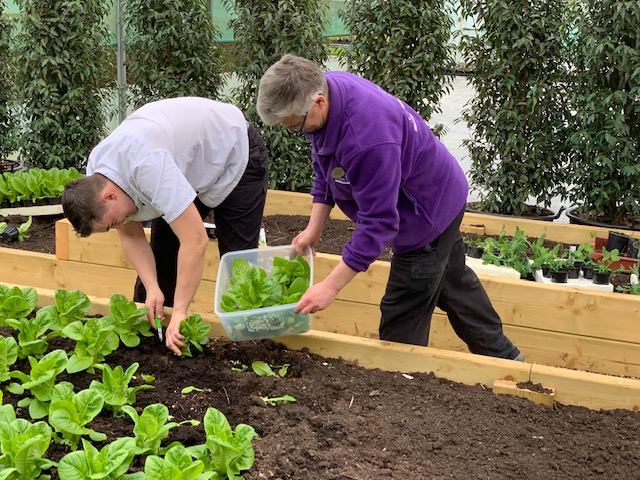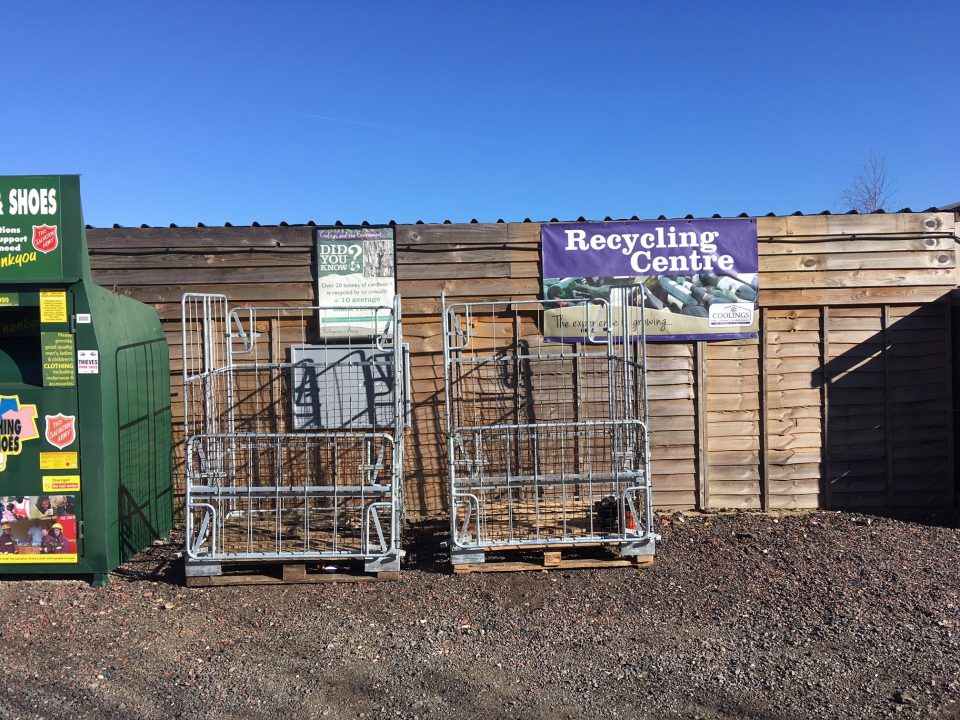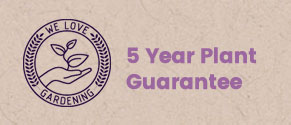Plastic reduction
We have recycling zones for customers in all our garden centres.
Not only can customers bring their old pots back to us for recycling, they can also take the pots from our recycling zones home to reuse rather than buy new.
All of the plants grown on our nurseries are potted into recyclable plastic pots. These can either be recycled with your usual household waste or returned to one of our sites and put into the appropriate recycling bin in the carpark.
Flower bulbs are sourced in bulk to reduce packaging and sold loose for customers to select according to their needs, this also reduces printing of coloured labels and materials.
Our carrier bags are made from vegetables and are completely compostable.
We recycle all of our plastic wrapping waste.
We encourage customers to return all their old compost sacks for recycling.
Waste Management
Our wooden pallets are sold for reuse, or returned to suppliers be used again.
Scrap metal is recycled.
Cardboard is baled for recycling.
We grow crops requiring lower temperatures during the autumn and winter to reduce the need for heating our glasshouses. Most crops only require a frost free environment.t.
Our glasshouses are computer controlled to minimise the need for energy use. Heating, venting, shading and humidity are all measured to reduce heat loss and energy consumption.
Green waste from our nursery is composted and recycled. Much of the compost is used within the local community in flower beds and with organisations and charities constructing their own gardens.
The cooking oil we use is our kitchens is collected and taken for biofuel production.
We have a waste wood burner that converts waste wood into hot water to heat one of our shops and cafes. This also provides hot water for hand washing and washing up. (CL)
Peat
We have enhanced our range of peat free peat free composts on offer to our customers, peat free compost now out sells peat based products. By the end of 2023 we will no longer
offer peat based compost for sale, we will sell only peat free compost.
Chemicals
We do not use any pesticides containing neonicotinoids.
Our garden centres do not sell any chemicals containing neonicotinoids.
We offer a range of natural products, including those that are organic, to feed, care and nurture plants and gardens allowing gardeners to make a more sustainable choice.
Our nurseries use an Integrated Pest Management programme using beneficial insects and natural plant stimulants to reduce or totally eradicate the need for pesticides.
Water Use
We collect rainwater from the roofs of our buildings and run off from the ground to feed into our reservoirs at The Gardener’s Garden Centre, this is then used for filtering and using on our plants.
Targeted irrigation systems are used throughout our nurseries through sand beds and drippers, to reduce our water usage. This also includes automatic control for watering at optimum times, such as dawn and dusk.
We provide our customers with a wide range of options for collecting, storing, and conserving water at home such as water butts, irrigation systems, watering timers, water absorbing materials, mulches and more.
We provide water for customers to drink or refill their re-usable bottles in all our restaurants.
Carbon Footprint
All new lighting installations use energy efficient LED fittings. Older fittings are systematically being upgraded.
The electricity we use in all our garden centres supplied by green energy providers.
50% of our centres generate a proportion their own power from our own solar installations, often selling excess power back to the grid.
We have a sustainable wood pellet boiler that heats our education building, staff rooms, offices and provides additional heating for crops growing in our glasshouse. (TGGC)
Our restaurants offer vegetarian and vegan options which can help reduce impact on the environment from intensive farming.
We offer refillable solutions for grass seed and bird food to reduce packaging and encourage customers to refill existing containers.
Over 95% of the plants grown on our nurseries originate from UK plug producers, reducing air miles and carbon from transportation.
Growing plants on our own nurseries reduces the carbon footprint from transportation as all are truly local.
Growing veg for the café in our ‘Plot to Plate’ garden reduces carbon from transportation and you can’t get fresher!
Working with Ecogrow, based at our site in Knockholt, we produce salad crops for our café and retail sales. Growing in hydroponic, soilless conditions reduces peat use and carbon from transportation.
Biosecurity
It is better to prevent a problem rather than have to deal with one, we offer a range of barrier nets, fleeces and mesh to protect crops without the need for any treatments.
Each of our sites has areas for nature and wildlife to thrive. From gardens to ponds, bug hotels and hedgehog homes, we want to encourage wildlife to flourish and plants to grow.
We even have an 8-acre nature trail with mature trees to absorb carbon dioxide and act as nature’s air conditioning.
Ecosystems and Wildlife
Preservation
Our nurseries use a system of Integrated Crop Management which greatly reduces the need for chemicals to control pests and diseases. This is achieved by using a combination of crop monitoring, cultural and biological controls and natural plant stimulants.
Colleagues & Customers
We are providing RHS accredited training and qualifications, available to all staff, to learn more about plants and their needs to thrive. How to control pests and diseases and how to grow and garden to help, not harm the environment.
RHS courses are offered to customers to enhance their understanding of plants and the environment.
What we are aiming for the future
- Installations of boreholes to limit our dependence on mains water supplies
- Looking at rainwater harvesting options across all our sites
- Ensure all our greetings cards and calendars do not use plastic wrapping
- Ensure all takeaway food packaging is environmentally friendly and recyclable
- Installation of electric car chargers
- Add electric vehicles to the fleet





